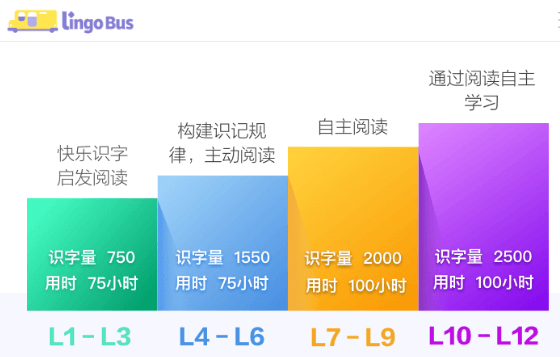Learn Chinese – Chinese Listening Practice
If you’ve decided to learn Chinese or are learning Chinese but are still finding conversations difficult, you’ve come to the right place! Listening is an important language skill yet most learners often focus on speaking and reading. Chinese listening can be difficult not just because of the tones, but the dialects and amount of idioms used. Even after 6 years there are times I have to guess what the conversation is about!

Chinese listening practice help!
Most articles that talk about Chinese listening practice will often suggest websites or apps. Although helpful, these often tend to be very broad. So you might end up wasting a lot of time and get frustrated trying out lots of apps. To make it easier for you I’ve separated listening practice into three typical levels. You can use the resources suggested at almost every level. However, I’ve chosen specific examples that will help you make the most out of your listening practice. That’s because the number one reason for students quitting their language study is because it’s too hard! But most of the time, it’s the students themselves who have made it difficult for themselves! So here’s some helpful Chinese listening practice activities:

Beginners
As a beginner you are probably still very excited about learning Chinese. This beginner’s excitement is one of your best tools! It will help you to weather the storm when the going gets tough… or boring!
Although it may seem boring as a beginner, the best thing you can do is lay a foundation of good Chinese listening skills. Even if it seems boring or like a waste of time. I was once where you are now, and believe me it’s important. The best thing you can do is start with the tones. Not only will it help with your listening it will also help with your speaking. There are plenty of free apps out there that can help you with this. For example, Pinyin Trainer, Pinyin syllable, Mandarin Hero, Chinese Pinyin Learning, Tone game, etc. All of these have one thing in common, they focus on tones and have a variety of listening and speaking practice. Some are more fun than the others and are based in a game concept (Tone Game). Whereas other like Mandarin Hero and Chinese Pinyin Learner are more academic. I suggest getting one of each so as not to get too bogged down. Listen and guess the tones spoken, take it further by listening to whole phrases not just words.
As a beginner your next aim should be to understand basic conversations. Most Chinese textbooks follow this format. The best textbooks I ever used to learn Chinese were from BLCU (Beijing Language and Culture University) and of course the HSK books. Both of these come with audio tapes, and have sections that focus on just listening. Both books have ‘stories’ with audio to help you practice your listening skills. If you can’t get your hand on these books, there’s plenty of similar content online. For example, Mandarinbean, where you can find stories graded by HSK level. The best way to use these resources is to learn using the story and audio together. Start by listening to the text once to get a gist of what it’s talking about. Then read it and highlight any new words. Go back and listen to the audio once more, this time without looking at the text. Do this until you understand the context of the sentence to ensure all is understood. By using this method whenever you find a new text you will find your listening skill will certainly improve.

Intermediate
Now that you aren’t a beginner you can are able to survive and converse well in Chinese as long as it’s based on daily topics. You will find yourself repeating similar conversations over and over but getting confused when new words are added into play. This can happen frequently in China just due to the huge amount of synonyms! Synonyms are different words or phrases that mean exactly the same as another word or phrase in the same language. For instant I can think of at least 5 ways of expressing thanks in Chinese! But at the start all I knew and could use was谢谢 (xie1xie) so was confused when people would say 辛苦了(xin1ku3le). This is just another way to express thanks. It emphasizes that the other person worked hard and you are extremely thankful for their trouble. The number of synonyms and the frequency with which they’re used means you will need to memorize additional vocabulary. In order to avoid getting stuck in your listening focus on your vocabulary.
Since you aren’t a beginner anymore you probably have a good hold of your tones. But watch out for Homonyms! Homonyms are words that are pronounced exactly the same but have different meanings. There’s quite a few in the Chinese language. Even if you know your tones well, they can still be quite tricky. The best way to do this is to practice a skill that will continue to help you through your whole language journey. When listening focus on context and overall conversation don’t translate word by word. This will also help you when you come across the next thing to overcome, the dialects!
Get a range of audio or start watching Chinese films and TV shows to help you practice your listening skills. After all you learn Chinese to communicate and understand Chinese people. What better way to do this than by watching popular Chinese! I suggest the following to get you started as these films have an easy storyline and some even include different dialects:
人在囧途 (lost on journey)
北京爱情故事 (Beijing love story)
我的蛋男情人(The egg boy)
Websites like Dramafever will have Chinese TV shows and films with translation! There are some great tips about how to learn a language fast.

Advanced
For advanced learners the sky is the limit in terms of resources as your level is so high! If anything the major problem, you might run into is that the resources for Chinese listening practice available are too easy.
That’s why at this stage the best thing to source listening resources from is stuff Chinese people themselves will listen! Get some podcasts, music, or even get your hands on talk shows such as ‘roundtable’ which discusses topics in English and Chinese. To really practice your listening skills. You can find plenty of resources online; you don’t even have to look far as China’s CCTV news station (now CGTN) has a page dedicated to this.
At this stage try to increase your listening skills by also focusing on Chinese culture. Learn the idioms and try to understand Chinese thoughts to help you understand the jokes!
At whatever stage of your language studies you are in I suggest having guidance from a professional. I know time can be a constraint, that’s why I suggest Lingo Bus as a great app for kids. Lingo Bus classes are created for kids aged 5 to 12 years old. Classes are 25 minutes long and can be done individually or in a group from the comfort of your own home. On top of the classes, resources such as audio books, flashcards, articles, and videos are constantly uploaded and available to users.
I hope this article has offered you some basic ideas to help you improve your Chinese listening practice!
Start Learning Chinese in the next 30 Seconds
Copyright Notice: Everyone is welcome to forward the articles in this blog as long as the links to these articles are also included.

